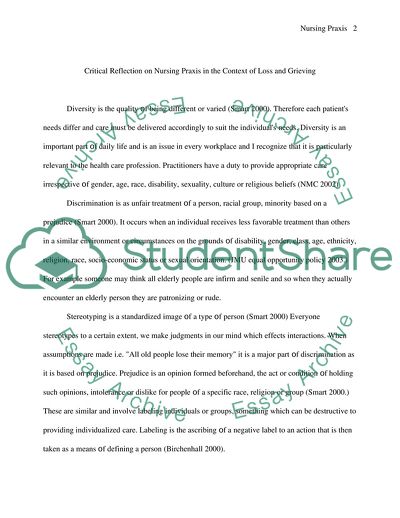Cite this document
(Reflection on Nursing Praxis in the Context of Loss and Grieving Essay, n.d.)
Reflection on Nursing Praxis in the Context of Loss and Grieving Essay. https://studentshare.org/health-sciences-medicine/1710787-critical-reflection-on-nursing-praxis-in-the-context-of-loss-and-grieving
Reflection on Nursing Praxis in the Context of Loss and Grieving Essay. https://studentshare.org/health-sciences-medicine/1710787-critical-reflection-on-nursing-praxis-in-the-context-of-loss-and-grieving
(Reflection on Nursing Praxis in the Context of Loss and Grieving Essay)
Reflection on Nursing Praxis in the Context of Loss and Grieving Essay. https://studentshare.org/health-sciences-medicine/1710787-critical-reflection-on-nursing-praxis-in-the-context-of-loss-and-grieving.
Reflection on Nursing Praxis in the Context of Loss and Grieving Essay. https://studentshare.org/health-sciences-medicine/1710787-critical-reflection-on-nursing-praxis-in-the-context-of-loss-and-grieving.
“Reflection on Nursing Praxis in the Context of Loss and Grieving Essay”. https://studentshare.org/health-sciences-medicine/1710787-critical-reflection-on-nursing-praxis-in-the-context-of-loss-and-grieving.


